In blockchain and decentralized technologies, Decentralized Autonomous Organizations (DAOs) have emerged as a revolutionary way to orchestrate collective action without the need for traditional hierarchical structures. At the heart of DAO functionality is the voting mechanism—this is not merely a feature but the backbone of decentralized governance, enabling transparent, inclusive, and equitable decision-making processes.
As DAOs continue to proliferate across various sectors, understanding the nuances of different voting systems becomes crucial. These mechanisms are not one-size-fits-all; they vary widely in design and impact, influencing how decisions are made and how power is distributed among members. Colony, a prominent platform in the DAO space, introduces a unique approach to this paradigm. Unlike traditional token-based voting systems that may favor wealth over contribution, Colony emphasizes a reputation-based system. This method integrates the quantity and quality of an individual’s contributions, ensuring that those who are actively engaged and invested in the DAO’s success have a greater say in its direction.
This article delves into the diverse world of DAO voting mechanisms, with a special focus on how Colony’s innovative governance model is designed to foster fairer and more effective decision-making. By exploring these advanced mechanisms, we aim to provide insights that help stakeholders across the DAO ecosystem navigate the complexities of decentralized governance more effectively.

Basics of DAO Voting
Voting within DAOs is a fundamental process that allows members to participate in the governance and decision-making of the organization. This democratic approach is pivotal in ensuring that the operations and strategic directions of a DAO are aligned with the collective will of its members. Voting mechanisms in DAOs replace traditional corporate governance structures with a system where decisions are made based on the consensus of stakeholders rather than top-down executive orders.
The most common form of DAO voting is token-based governance. Here, decision-making power is directly tied to the number of governance tokens an individual holds. This method leverages blockchain technology to facilitate transparent and tamper-proof voting, allowing token holders to cast votes on proposals that could range from simple operational changes to significant alterations in the organization's protocols. Token-based voting not only democratizes governance but also adds a layer of security as the blockchain ledger records each vote immutably, ensuring that every voice is accounted for without any risk of alteration.
Transparency is another cornerstone of DAO voting. Every transaction and vote within a DAO is recorded on the blockchain, providing a transparent and permanent record that all members can access. This transparency ensures that all actions are visible, traceable, and verifiable by any member, enhancing trust and reducing the potential for fraud or corruption.
However, security in DAO voting goes beyond the transparency provided by blockchain technology. Secure voting mechanisms are crucial to protect the integrity of the vote against external attacks and internal manipulations. Techniques such as cryptographic voting and multi-signature approvals help safeguard the voting process, ensuring that only legitimate votes are counted and that the outcomes truly reflect the consensus of the community.
Effective governance in DAOs hinges on robust voting mechanisms that uphold the principles of token-based governance, transparency, and security. These elements ensure that DAOs operate in a way that is democratic, transparent, and secure, empowering members to actively shape the organization's future. The evolution of these voting mechanisms continues to refine how decentralized governance can be implemented, offering a promising alternative to traditional organizational structures.

Common DAO Voting Mechanisms
DAOs utilize a variety of voting mechanisms to achieve consensus among members, each with its unique attributes and applications. Understanding these mechanisms is essential for anyone involved in a DAO, as the choice of voting method can significantly influence the organization's governance and operational efficiency.
Simple Majority Voting is the most straightforward approach where a proposal passes if it receives more than 50% of the votes cast. This method is beneficial for routine decisions that do not require extensive consensus to avoid gridlock in the organization. It’s fast, clear, and efficient, making it ideal for decisions that are low-stakes or need quick resolution.
Supermajority Voting requires a higher percentage of votes to pass significant proposals, typically between 66% to 75%. This mechanism is used for critical decisions that can have a profound impact on the DAO, such as changes to the governance framework itself or large financial expenditures. The requirement for a larger consensus helps ensure that such impactful decisions have wide support within the community, thereby reducing the risk of contentious splits.
Quadratic Voting is a more complex but innovative approach where members can cast multiple votes on a proposal, but the cost of each additional vote exponentially increases. This method allows voters to express the strength of their preference on issues rather than just the direction of their preference. It's particularly useful in situations where the intensity of preferences varies widely among members, as it prevents minority groups from being consistently outvoted by a simple majority.
Weighted Voting allocates voting power based on certain criteria, such as the amount of tokens held, the length of time tokens have been held, or contributions to the DAO. This mechanism ensures that those with a greater stake in the DAO (financially or otherwise) have a correspondingly greater influence on its direction. Weighted voting is often used in investment DAOs where financial stakes are directly linked to voting power, aligning voting influence with financial risk and investment.
Each of these voting mechanisms has its benefits and is chosen based on the specific needs and goals of the DAO. Simple and supermajority voting are favored for their simplicity and clarity, quadratic voting for addressing varied intensity in preferences, and weighted voting for aligning influence with stake or investment in the DAO.

Colony's Voting Mechanisms Explained
Colony stands out in the DAO landscape with its innovative approach to decentralized governance, particularly through its reputation-based voting system. Unlike traditional token-based voting, where influence is often proportional to token ownership, Colony's system assigns voting power based on a user’s reputation within the DAO. This reputation is earned through contributions and active participation, making Colony’s model one of the fairest and most meritocratic in the DAO space.
Reputation-Based Voting: In Colony, voting power is not solely derived from token holdings but is significantly influenced by the reputation each member holds. This reputation accumulates as members complete tasks and contribute positively to the DAO, aligning voting power with proven commitment and value addition to the community. This system ensures that those who are most actively involved and contributing to the DAO's objectives have a greater say in its governance, promoting a more engaged and responsible community.
How it Works: When a decision needs to be made, a motion can be raised within Colony. Members can then stake the DAO’s native token on either side of the proposal, expressing their support or opposition. The weight of each vote is determined by the amount of reputation the member has in the relevant domain or team within the Colony. This ensures that decisions are not just made by those with the most financial stake, but by those with proven expertise and investment in the DAO’s success.
Benefits of Colony’s System:
- Fairness: By weighting votes according to reputation, Colony ensures that governance is influenced by merit and contribution rather than merely capital investment. This encourages members to contribute more significantly and thoughtfully to the DAO, knowing that their involvement directly affects their governance power.
- Engagement: Reputation-based voting incentivizes members to stay active and involved in DAO operations. It aligns members' contributions with their influence in decision-making processes, fostering a more dynamic and participative community where members are motivated to contribute to governance.
- Flexibility and Autonomy: Within Colony, different teams or domains can have autonomous governance with their own specific reputations. This allows for decentralized governance structure where each team can make decisions relevant to their specific contexts and needs, promoting efficiency and relevance in governance decisions.
- Security and Reduced Manipulation: Since reputation cannot be bought or transferred and must be earned through meaningful participation, the risks of vote buying and other forms of manipulation are significantly lowered. This leads to more secure and trustworthy governance processes.
- Decay of Reputation: Colony’s unique feature where reputation decays over time ensures that governance power is current and reflects recent contributions rather than past activities. This decay mechanism compels ongoing participation and contribution, keeping the community active and the governance dynamic.
Colony's voting mechanisms provide a robust framework for fair, secure, and engaged DAO governance. By prioritizing contribution and active involvement over financial stake, Colony not only democratizes the decision-making process but also cultivates a more accountable and motivated community. This approach to voting is a significant evolution in the governance of decentralized organizations, setting a standard for how DAOs can operate effectively and equitably.
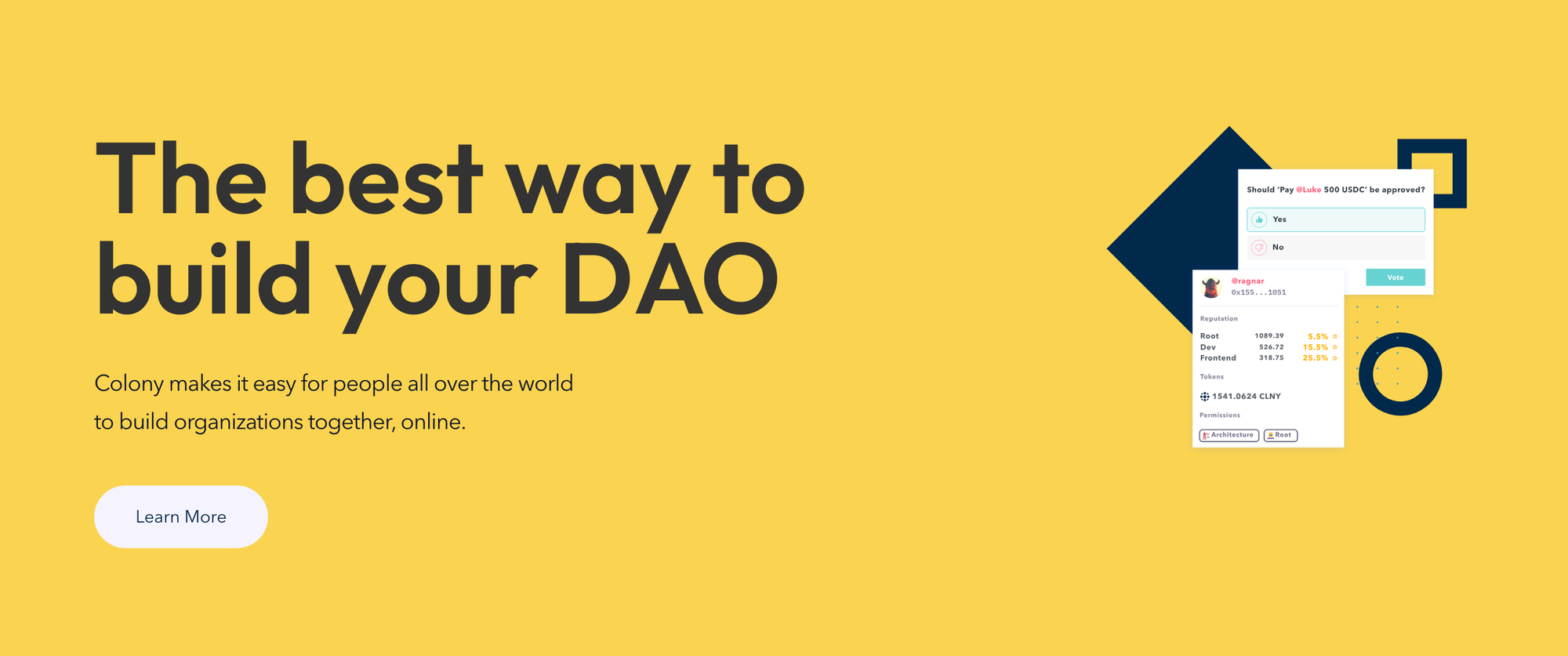
Challenges in DAO Voting and Colony’s Solutions
DAOs, while innovative, face inherent challenges in their voting mechanisms that can hinder their efficiency and effectiveness. Common issues include voter apathy, security vulnerabilities, and the complexity of the voting process. Colony’s platform addresses these challenges through a series of well-designed features and mechanisms that enhance user experience, ensure security, and boost participation.
Voter Apathy: One of the most significant challenges in DAO voting is ensuring consistent and meaningful participation from members. Voter apathy often arises when members feel their contributions are too small to make a difference, or when the voting process is cumbersome and time-consuming. Colony combats this by integrating reputation-based voting where members’ influence grows with their contributions. This system directly links the effort a member puts into the DAO with their power in decision-making, thereby incentivizing active participation. Additionally, Colony employs the Lazy Consensus model which reduces the need for active participation in every decision unless a member disagrees, making voting less demanding and more engaging.
Security Concerns: Security in DAO voting is critical, as vulnerabilities can lead to manipulations and breaches, undermining the integrity of the entire organization. Colony enhances security through several layers of protection. First, the use of blockchain technology ensures that all votes are recorded transparently and immutably, making any tampering evident. Second, Colony's reputation system mitigates risks of token-based attacks such as bribery and vote buying since reputation cannot be transferred and must be earned through contributions and is subject to decay. This setup ensures that voting power is continuously earned and representative of each member’s current contributions.
Complexity in Voting: DAOs can often involve complex procedures that deter members from participating. Colony addresses this by simplifying the user interface and making the process of raising motions, staking, and voting as straightforward as possible. Tools and tutorials are provided to guide new users through their first interactions, and the overall design of the platform prioritizes usability without sacrificing functionality. For more complex decisions, Colony’s system of Motions and Simple Decisions allows members to engage with governance processes at a level that suits their expertise and interest.
Moreover, Colony's approach to staking and rewards for voting participation tackles the issue of low engagement. By rewarding members for active participation and penalizing incorrect or malicious actions, Colony ensures that members are motivated to take part in governance not just for immediate gains but for the long-term health and success of the DAO.

Implementing Voting Mechanisms with Colony
Setting up and managing voting mechanisms within a Colony DAO is a streamlined process, thanks to Colony's user-friendly interface and robust features. This step-by-step guide will walk you through implementing voting in your Colony, ensuring that you can effectively leverage the platform for decentralized governance.
Step 1: Create a Colony
Before setting up voting, you first need to create a Colony. This is straightforward on the Colony platform. Navigate to the Colony website, click on "Create Colony," and follow the prompts. You'll need to choose a network (like Ethereum) and create or connect a wallet if you haven’t already done so.
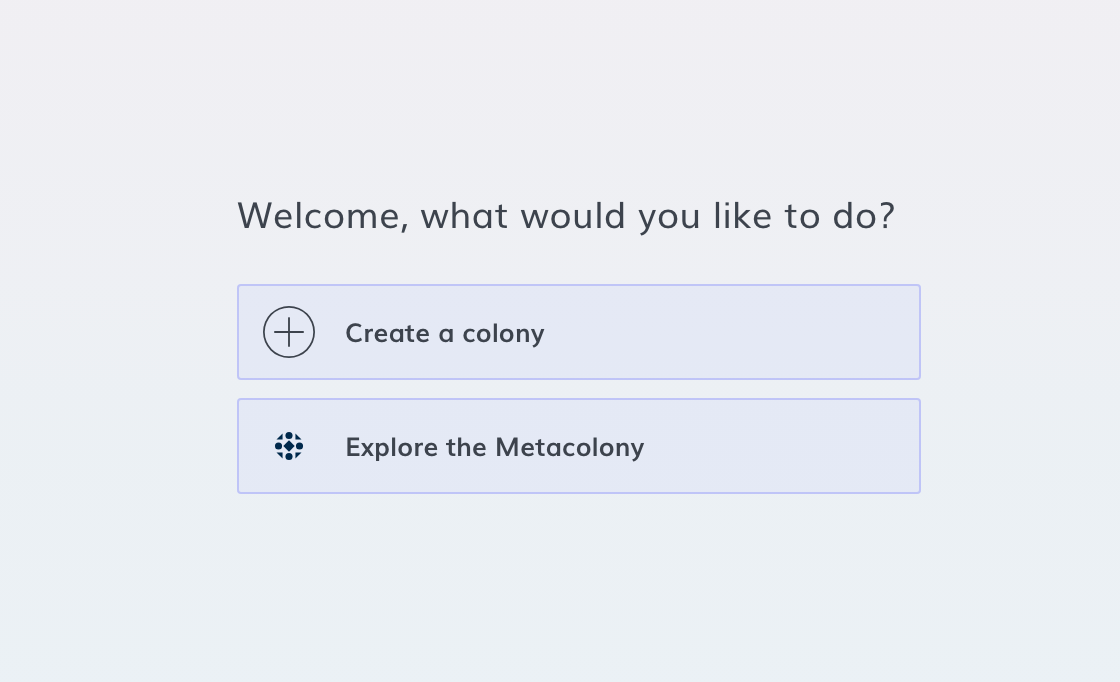
Step 2: Define Teams and Domains
Organize your Colony into teams or domains. These sub-DAOs can represent different projects, departments, or areas of responsibility. In Colony, go to the 'Teams' tab and create new teams by specifying names and assigning initial members and their roles. This structure will be crucial for reputation distribution and voting segmentation.
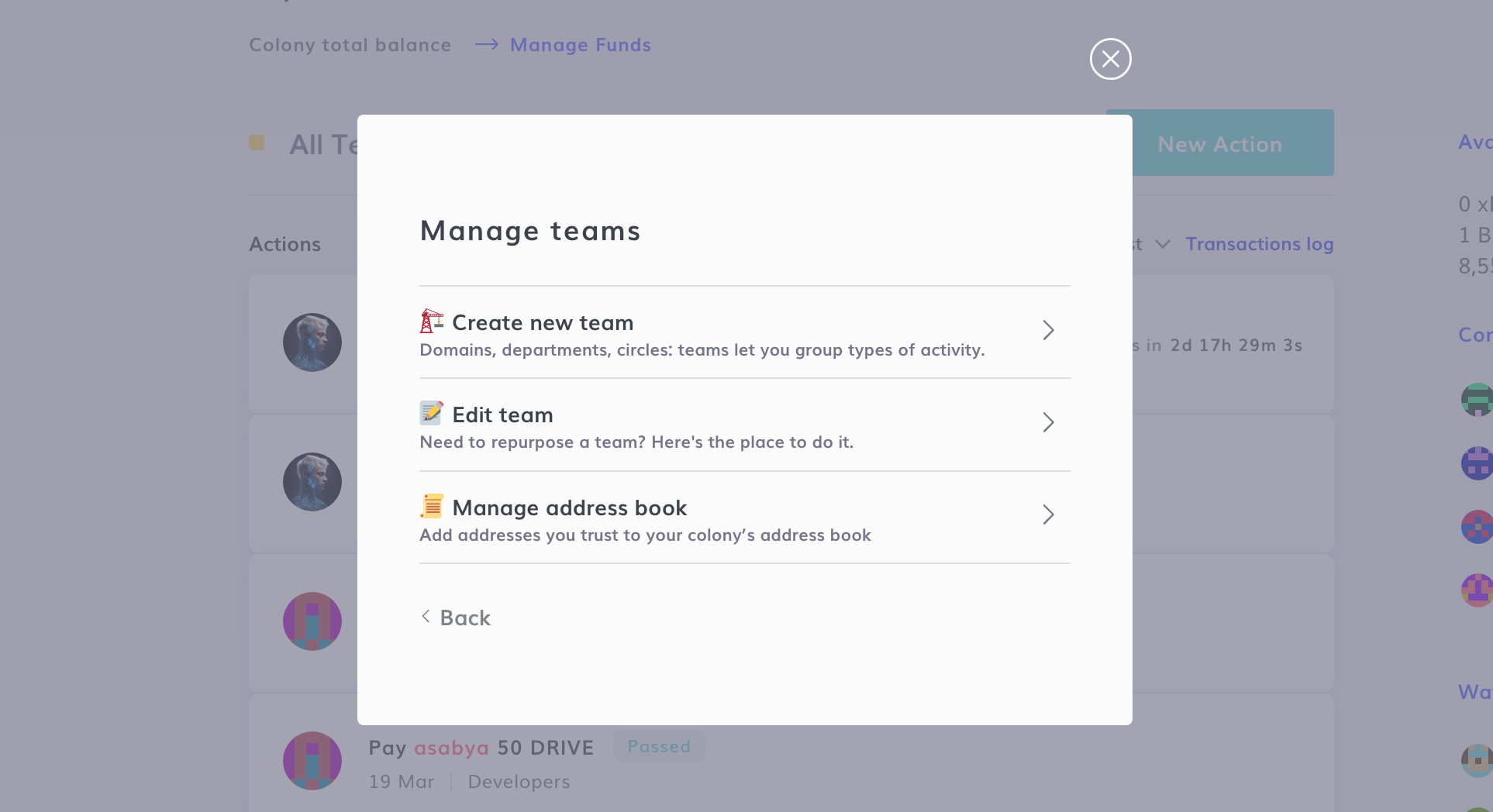
Step 3: Establish Voting Parameters
In Colony, you can customize your voting mechanisms to suit your DAO's needs. This includes setting up reputation-based voting, deciding on majority rules, or implementing the Lazy Consensus model for quicker decisions. Access the 'Administration' section to configure these parameters, ensuring that the settings align with your governance goals.
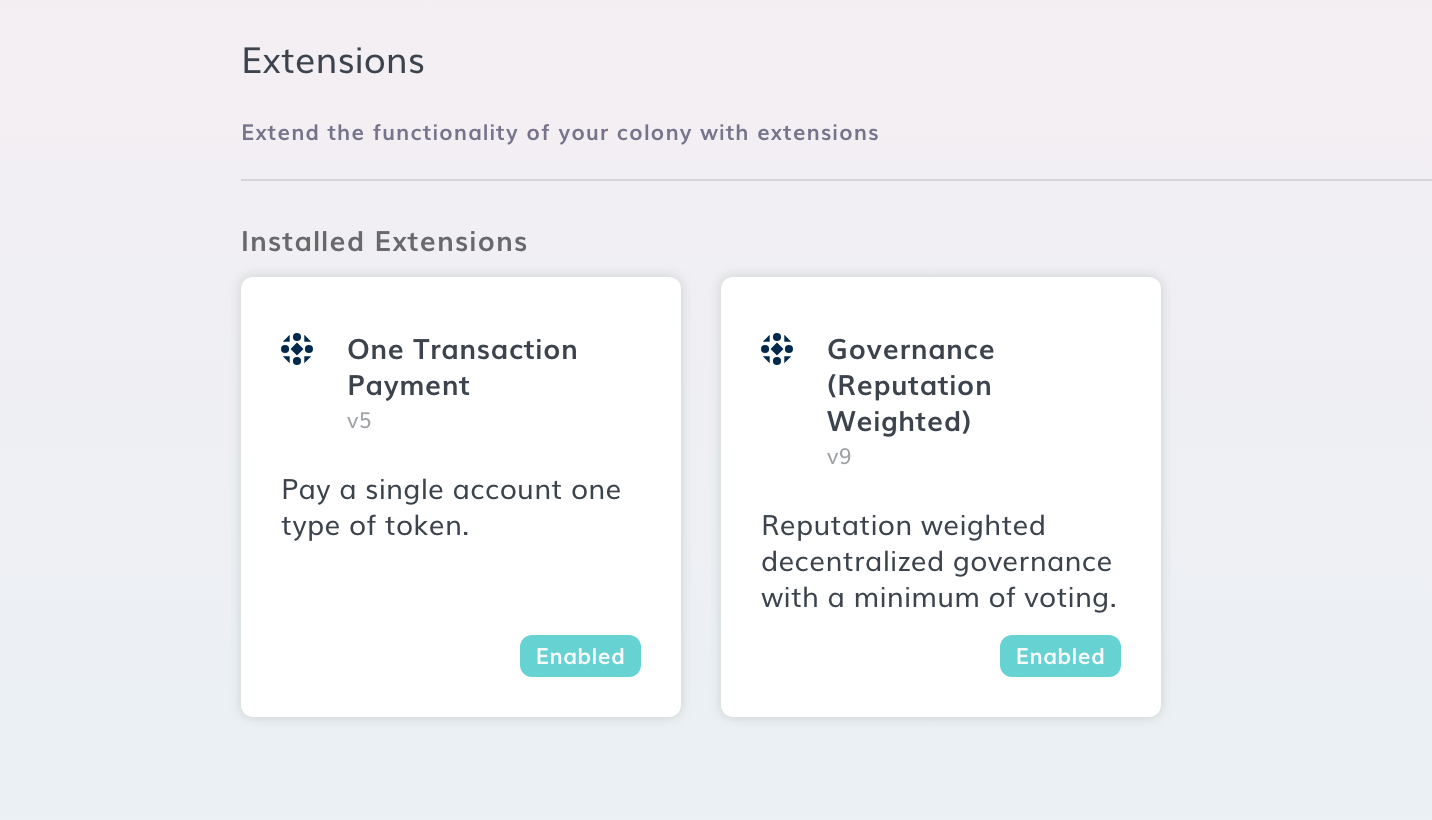
Step 4: Introduce Motions and Decisions
With your structure and parameters set, introduce the concept of Motions (proposals that can trigger blockchain transactions if approved) and Simple Decisions (non-transactional proposals, like policy changes). In the Colony interface, navigate to the 'Motions' or 'Decisions' tab to create a new proposal, describe its purpose, and specify any required actions upon approval.
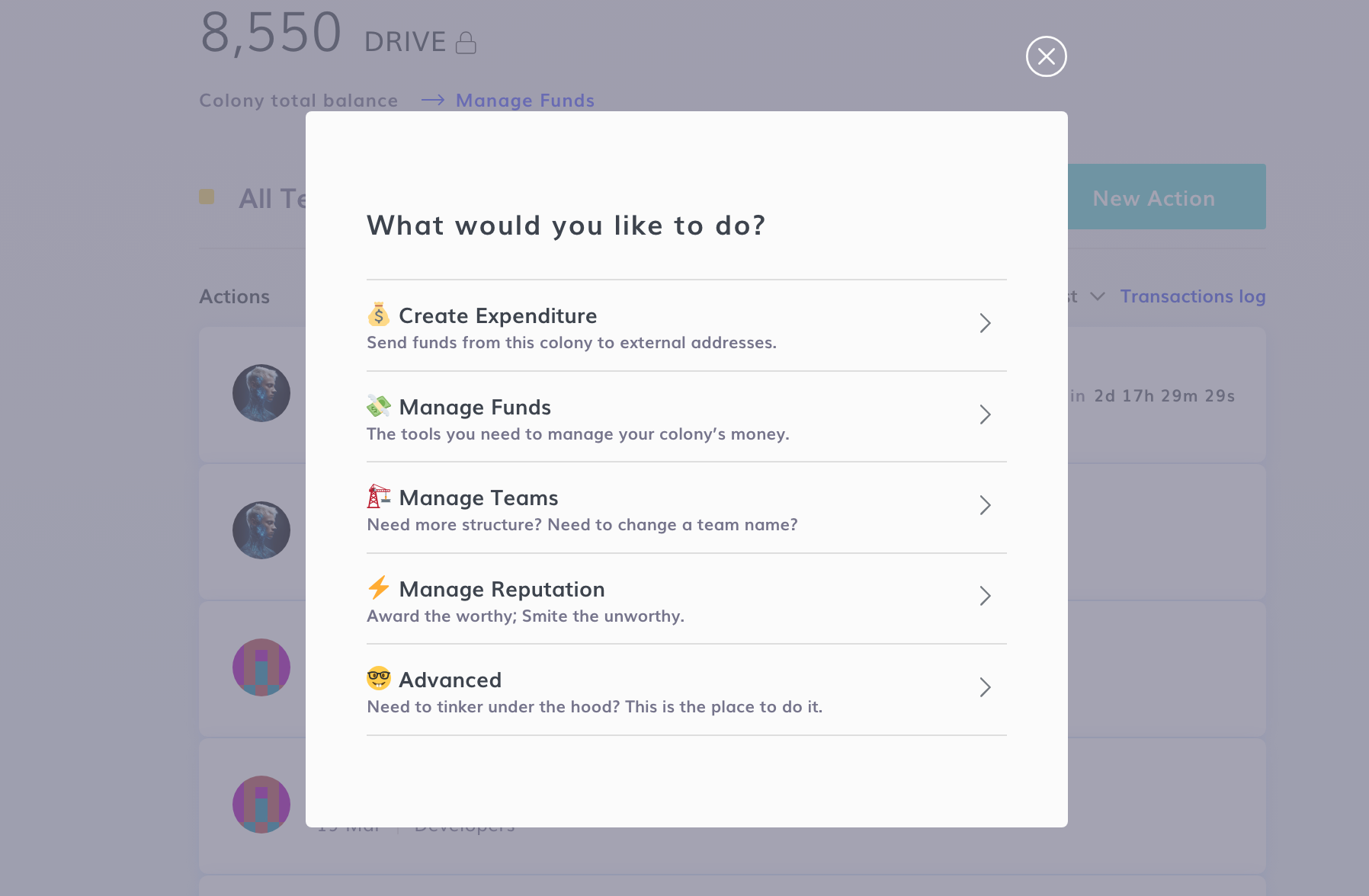
Step 5: Engage in Reputation and Token Staking
For a Motion or Decision to be valid, it needs to be backed by staking, where members lock a certain amount of the colony’s native tokens or their reputation to show support or opposition. This process is crucial for securing commitment and preventing spam. Members can stake by selecting a proposal and choosing to support (Yay) or oppose (Nay).
Step 6: Participate in Voting
Once a proposal is adequately staked, it moves to the voting phase. Members with sufficient reputation in the relevant team or domain can cast their vote according to the established voting rules. Colony’s interface makes it easy to view ongoing votes, participate in them, and track outcomes.
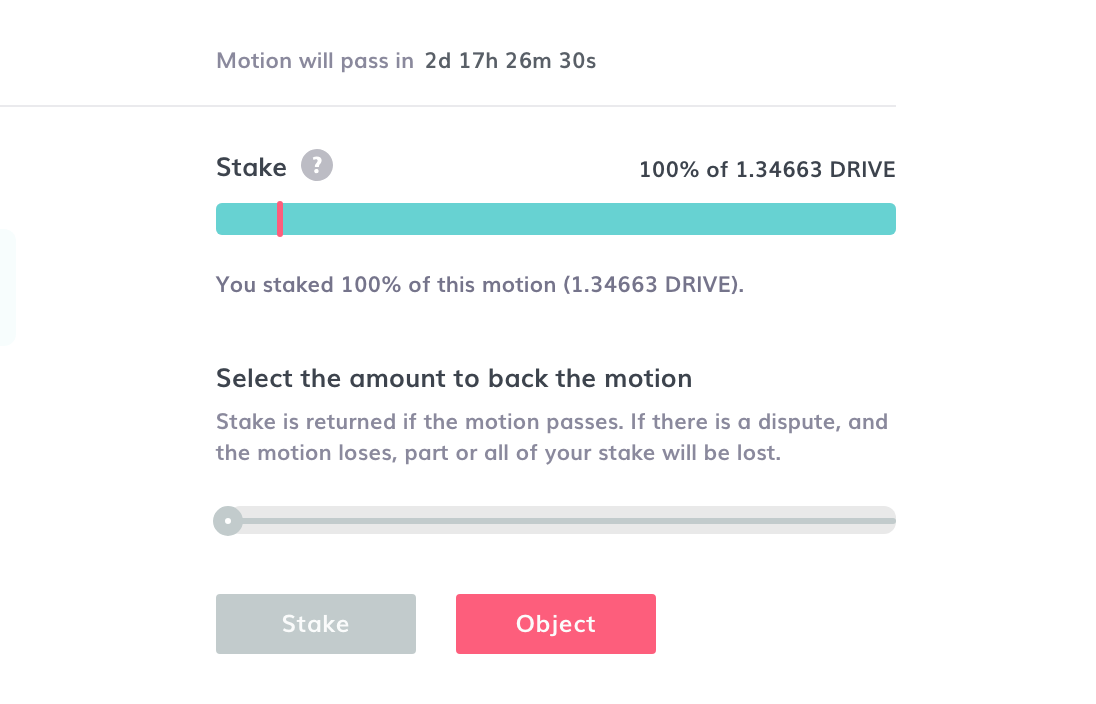
Step 7: Monitoring and Managing Outcomes
After the voting phase concludes, actions based on the vote's outcome are automatically executed if the proposal passes.
Practical Tips:
- Regularly update your colony’s structure and voting rules as your organization evolves.
- Encourage active participation by clearly communicating the importance of each vote and its impact on the DAO.
- Utilize Colony’s educational resources to help new members understand the voting process and the significance of their contributions.
Implementing effective DAO governance with Colony's voting mechanisms can significantly enhance decision-making processes, making them more democratic and aligned with the collective will of the community.
Conclusion
Understanding and effectively utilizing voting mechanisms is fundamental to the success of any DAO. These mechanisms not only ensure that governance processes are democratic and transparent but also that they align with the organization's goals and the community's expectations. Colony's platform offers a robust and intuitive set of tools tailored specifically for DAO governance, making it an ideal choice for any group looking to harness the power of decentralized decision-making.
Colony distinguishes itself with features like reputation-based voting and Lazy Consensus, which streamline governance and encourage active participation. These mechanisms are designed to foster a fair, engaged, and efficient governance environment, crucial for the long-term success of a DAO.
If you're considering setting up a DAO or looking to improve your existing organization's governance processes, exploring Colony's comprehensive suite of tools is a great starting point. With its user-friendly setup and flexible governance options, Colony empowers communities to achieve their decentralized aspirations effectively.
Join the Colony Community
Stay connected and dive deeper into the world of on-chain organizations with Colony. For the latest updates, insights, and discussions, follow us on our community channels:
- Website: Visit our website
- Twitter: Follow us on Twitter
- Discord: Join our Discord community
- Github: Find Colony on Github
Together, let's build the future of decentralized collaboration.